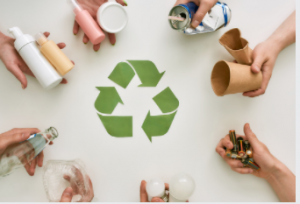There are many reasons to recycle your bottles. They save energy, reduce pollution and create jobs, to name a few. Recycling plastic bottles is one way to help the environment and save money. The benefits are endless. And the best part is that recycling plastic bottles is easy. If you’re wondering why bottle recycling is so important, read on to find out more. You’ll be glad you did! Here’s how! Read on to find out how you can start recycling plastic bottles today!
 Saves energy
Saves energy
Many people may not realize this, but bottle recycling saves energy. ThorntonsRecycling bottle recycling Adelaide aluminium cans, plastic bottles, and paper can save approximately 60 per cent of the energy needed to make them. Recycling glass bottles alone can save energy equivalent to running a 100-watt light bulb for four hours. And the savings do not stop there. A recent analysis confirmed that glass and metal bottle recycling saves more water than making new products.
In addition to reducing landfill waste, recycling helps conserve energy and natural resources. According to the Environmental Protection Agency (EPA), recycling eliminates 87 million tons of waste each year, equivalent to about one-third of the total trash thrown away. Bottles, cans, and metals can also be recycled to create new materials, such as glass, plastic, and metal. And these materials have an extremely low carbon footprint.
People waste nearly 2.5 million tons of plastic every hour. Recycling plastic can produce insulation, carpeting, and even figures, depending on their composition. Using recycled plastic in the production of new products can save over a ton of energy and save nearly 16 barrels of oil or 30 cubic yards of landfill space. For example, recycling just ten plastic bottles can save enough energy to run a laptop for an entire day. It’s a simple yet significant way to conserve energy.
Reduces pollution
Plastic bottles and other single-use packaging are a major contributor to pollution, and only a small percentage is recycled. Recycling them will reduce the amount of plastic entering landfills and cut down on the energy needed to produce new ones. Recycling saves money on landfill space, but it also saves the Earth’s natural resources, which can be used to produce other products. Plastic and aluminium bottles can also be recycled to reduce the amount of pollution released into the environment during energy production.
Currently, the United States is overflowing with 2 million tons of plastic water bottles. This waste is an incredible waste of resources, and the production of plastic is a major cause for concern. In addition to being an environmental hazard, plastics also use up fossil fuels, a major source of pollution and major source pollution. ThorntonsRecycling bottle recycling Adelaide can help reduce these quantities, and a small percentage of all bottles sold are recycled.
Currently, recycled glass and aluminium can require 95 per cent less energy than bauxite ore. They also reduce the temperature of glass furnaces, which increases equipment life. In addition, bottle recycling can be done on the go. Instead of throwing the empty container into the trash, hold onto it until you reach the recycling bin. Keep an extra box or bag in your car to recycle them easily. It will save you time and effort and reduces pollution.
Creates jobs
Did you know that a plastic bottle recycling program has created more than 3500 jobs in the Carolinas? And that there are more than two million dollars invested in the region’s economy? That’s just one of the benefits of the “Your Bottles Mean Jobs” campaign. It goes beyond spreading an environmental message to create a platform for economic development.
While domestic employment benefits of recycling programs are generally not widely reported, several positive economic impacts have been reported. For example, increased aluminium cans and PET plastic bottles recycling contributes to domestic employment growth. The report compares states with deposit-return systems to those without one. These states recover three times more beverage containers than their non-CDR counterparts. These increases in domestic employment far exceed those that result from the removal of virgin materials and landfilling.